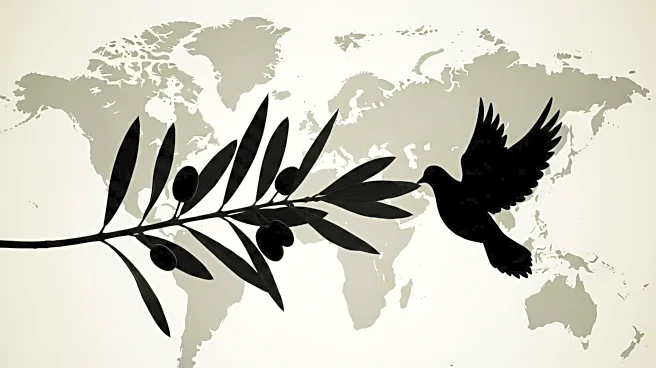What's Happening?
Diplomatic relations with Israel are facing challenges as many diplomats express fear in openly showing friendship to the nation. This hesitation is attributed to potential repercussions such as job loss, imprisonment, or even facing a death sentence. Prime Minister Benjamin Netanyahu recently addressed the United Nations General Assembly, where he spoke to numerous empty seats, highlighting the diplomatic isolation Israel faces. The reluctance to engage with Israel publicly is seen as a reflection of broader geopolitical tensions and the complex dynamics of international diplomacy.
Why It's Important?
The diplomatic hesitation to engage with Israel has significant implications for international relations and Middle Eastern politics. Israel's isolation at international forums like the United Nations could affect its ability to influence global policy and secure alliances. This situation underscores the delicate balance countries must maintain in their foreign policy, especially in regions with longstanding conflicts. The reluctance to openly support Israel may also impact peace negotiations and efforts to stabilize the region, as diplomatic support is crucial for fostering dialogue and cooperation.
What's Next?
Future diplomatic engagements with Israel may continue to be cautious, with countries weighing the risks of public support against potential backlash. The international community may need to address the underlying issues contributing to this diplomatic fear, such as regional conflicts and political pressures. Efforts to improve relations could involve behind-the-scenes negotiations and confidence-building measures. The situation may evolve as geopolitical dynamics shift, potentially leading to changes in how countries approach their diplomatic ties with Israel.
Beyond the Headlines
The diplomatic fear of showing friendship to Israel highlights broader ethical and cultural dimensions in international relations. It raises questions about the role of diplomacy in addressing human rights concerns and the influence of political ideologies on foreign policy decisions. This situation may prompt discussions on the importance of transparency and accountability in diplomatic practices, as well as the need for international cooperation to overcome political barriers.









